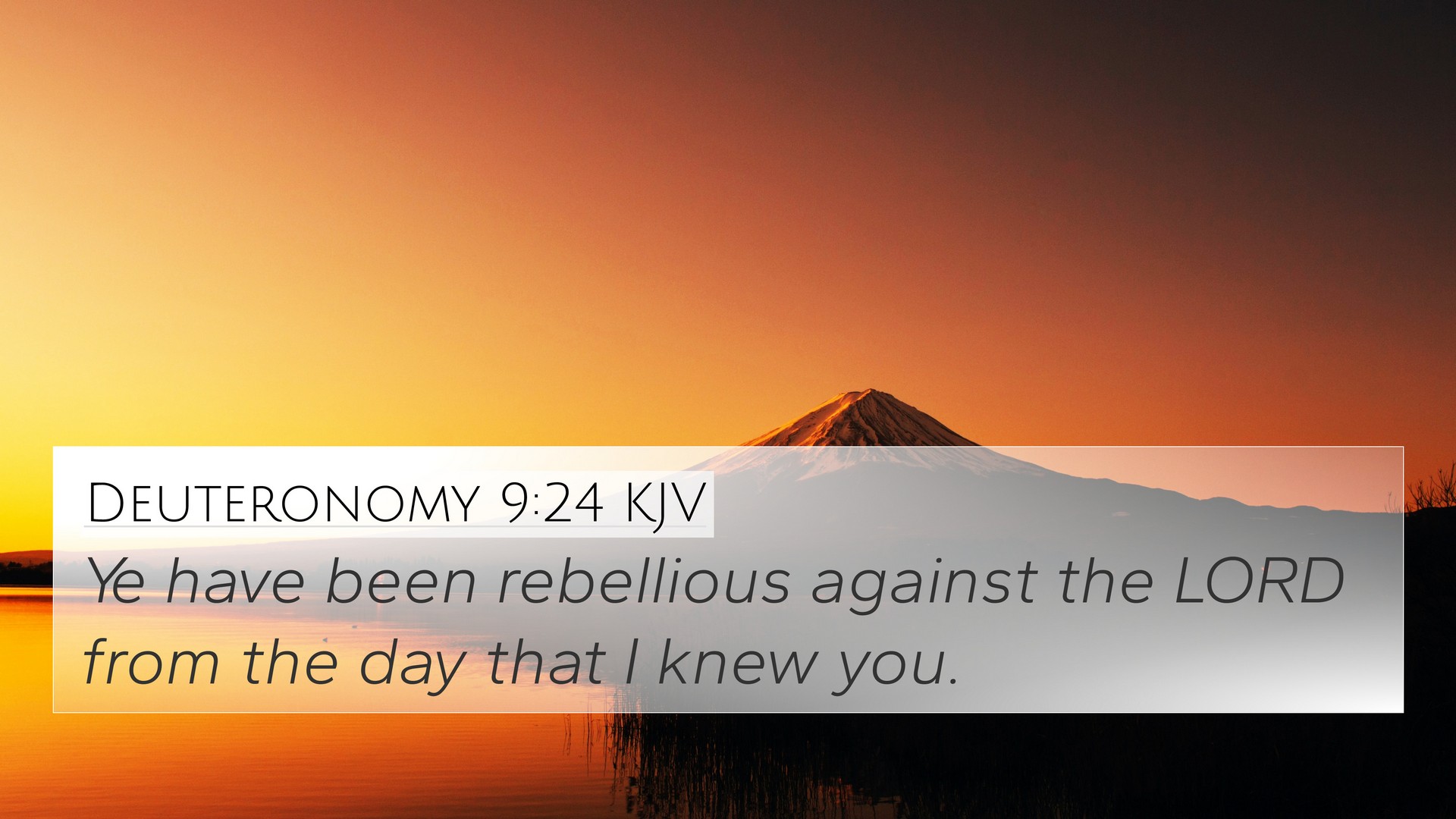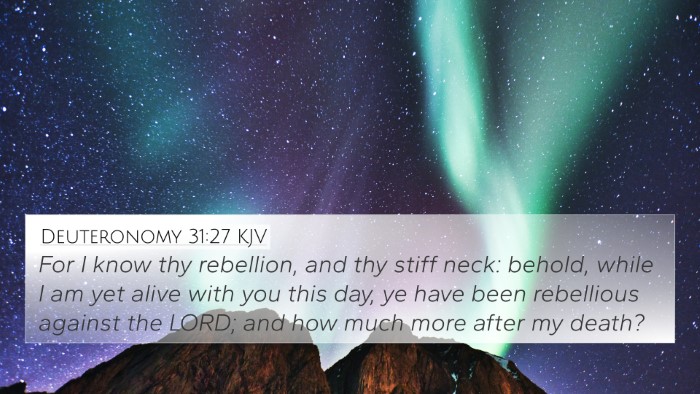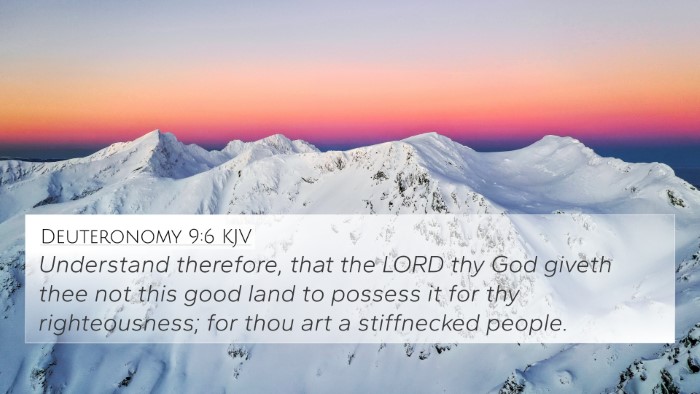Understanding Deuteronomy 9:24
Deuteronomy 9:24 states, "Ye have been rebellious against the LORD from the day that I knew you." This verse is a stark reminder of the persistent disobedience of the Israelites during their journey through the wilderness. Various public domain commentaries provide insights into the implications and context surrounding this passage, shedding light on its meaning and relevance.
Key Themes and Interpretations
- Rebellion Against God:
This verse highlights the continual rebellion of the Israelites against God's commands and statutes. Matthew Henry notes that their history is marked by a pattern of defiance, illustrating humanity's propensity to stray from divine guidance.
- The Role of Leadership:
Albert Barnes emphasizes the responsibility of leaders, like Moses, who witnesses firsthand the people's disobedience. Leaders must confront the reality of their followers' actions and guide them back to the path of righteousness.
- Divine Knowledge and Awareness:
Adam Clarke points out that God's omniscience is invoked here, as He 'knows' the rebellion of His people. This serves as a theological reminder that God is fully aware of human failings, reinforcing the need for repentance and humility.
- The Nature of Sin:
The rebellion mentioned is reflective of a deeper theological concept regarding sin's nature. It suggests that sin is not merely about the act but also about the heart's disposition towards God. This rebellious attitude is considered a fundamental issue in humanity's relationship with the Creator.
- Historical Context:
Understanding the historical context of the Israelites is crucial. This transgression happens after they received the law at Sinai, underscoring their inability to uphold the covenant, which is a recurring theme throughout their history.
Bible Verse Cross-References
This verse connects with numerous others throughout Scripture, illustrating the broader themes of human disobedience and divine patience. Here are some notable cross-references:
- Exodus 32:9-10: "And the LORD said unto Moses, I have seen this people, and, behold, it is a stiff-necked people." This earlier reference also notes God's awareness of the Israelites' rebellion.
- Numbers 14:11: "And the LORD said unto Moses, How long will this people provoke me?" This verse emphasizes the ongoing nature of their disobedience.
- Psalm 78:17: "And they sinned yet more against him by provoking the most High in the wilderness." This reflection on Israel's history captures the essence of their rebellion.
- Isaiah 63:10: "But they rebelled, and vexed his holy Spirit: therefore he was turned to be their enemy." This highlights the serious consequences of their actions.
- Hebrews 3:16-19: "For some, when they had heard, did provoke: howbeit not all that came out of Egypt by Moses." This New Testament reference connects the rebellion of the Israelites with a warning to the early church.
- Jeremiah 5:23: "But this people hath a revolting and a rebellious heart." This verse resonates with the theme of persistent rebellion against God.
- Romans 10:21: "But to Israel he saith, All day long I have stretched forth my hands unto a disobedient and gainsaying people." Here, Paul references the ongoing disobedience from the Old Testament through to his time.
Thematic Connections
Connections between Bible verses offer a deeper understanding of recurring biblical themes:
- Covenant Breaking: Many verses highlight Israel's failure to uphold their end of the covenant with God, as seen in Deuteronomy 9:24.
- God's Patience: Despite ongoing rebellion, verses like Exodus 34:6 illuminate God's steadfast nature and readiness to forgive.
- Call to Repentance: Scriptures such as 2 Chronicles 7:14 resonate with themes of returning to God, countering the rebellion highlighted in Deuteronomy.
Conclusion
Deuteronomy 9:24 serves as a vital scripture reflecting the nature of human rebellion against God. The insights drawn from various commentaries illuminate the theological implications of sin, the role of leadership, and the nature of God's awareness. By studying the cross-references within Scripture, one can see the intricate links that connect the Old Testament narrative to the New Testament teachings, revealing the continuity of God's dealings with humanity. Investigating these connections enhances understanding through comparative Bible verse analysis, helps identify links between scriptures, and encourages a comprehensive approach to biblical study.
Tools for Bible Cross-Referencing
Leveraging tools for cross-referencing can enhance one’s study of scripture:
- Utilizing a Bible concordance to find words and themes.
- A cross-reference Bible guide for thematic studies.
- Engaging in cross-referencing Bible study methods to deepen understanding.
Final Thoughts
The narrative in Deuteronomy 9:24 exemplifies the ongoing struggle between divine expectation and human fallibility. As one digs deeper into cross-referencing and thematic studies, the text opens avenues for reflection, understanding, and spiritual growth.





